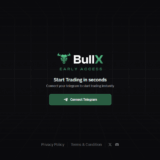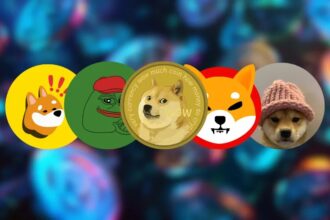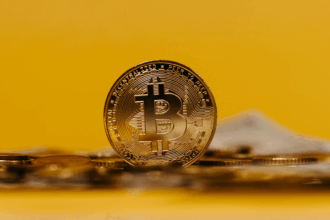In this article i will talk about Immutable crypto, I try to explain everything about Immutable, it advantages & disadvantages everything in one article.
What Is Immutable?
Immutable positions itself as the first layer-two scaling solution for NFTs on Ethereum. According to Immutable, its blockchain does away with Ethereum’s limitations like low scalability, a poor user experience, illiquidity, and a slow developer experience. Instead, users benefit from instant trading and massive scalability while enjoying zero gas fees for minting and trading NFTs without compromising user or asset security.
Thanks to this technology, users will be able to create and distribute assets like ERC-20 and ERC-721 tokens on a massive scale. Chris Clay, the game Director of Gods Unchained, a project already building on Immutable, stated that Immutable allows Gods Unchained to implement a new meta-system that was previously impossible. In this fashion, Immutable aims to create a world-class experience for users and developers alike.
Is Immutable Is Safe For Trading?
The Immutable company has a system that does not change, it is safe for trading digital assets because of its being secure and scalable. To secure transactions and assets from unauthorized access or frauds, they use cryptography-based methods. The network of this establishment is decentralized so it cannot be easily manipulated or censored since there are many nodes through which information passes at the same time.
Through its consensus mechanism, all deals made through this platform are deemed valid thus making them binding according to agreement from all parties involved in the network Therefore like every other exchange site, the safety levels exhibited by Immutable is determined by factors such as; how security measures have been implemented, user practices adopted and overall stability within blockchain environment.
How Does an Immutable Work?
Immutable is a blockchain protocol that works with a decentralized network of nodes for creating, transferring and managing digital assets. This is how it works:
Decentralized Network: The network of Immutable comprises several nodes found worldwide. To keep the blockchain in order they (these) nodes communicate among themselves.
Transactions: Users start transactions via creating transfers of digital assets or smart contract interactions, which broadcast them into the network.
Consensus Mechanism: Immutable approves and verifies transactions using proof-of-work (PoW) or proof-of-stake (PoS) consensus mechanisms to ensure all nodes agree on transaction sequence and validity.
Blocks: Validated transactions are added to the blockchain by being grouped into blocks. Each block contains a cryptographic hash of the previous one thereby forming an immutable chain that cannot be changed without consensus from most of the network.
Immutable Record: As soon as any block becomes part of the blockchain its contents become unchangeable. This implies no transaction recorded on the blockchain can be modified or deleted thus giving us an infallible record for all transactions.
Smart Contracts: There might be support for smart contracts in Immutable, which refer to self-executing agreements where agreement terms are directly written into code so that they can execute automatically and enforce transactions when certain predefined conditions get satisfied .
Security: In order to secure transactions & protect integrity within networks privacy keys; digital signatures along with encryption are used by Immutable thus ensuring only authorized individuals initiate transactions & access assets.
How To Use Immutable? Step By Step Guide
Here’s a step-by-step guide on how to use Immutable:
Choose a Wallet: You will need a compatible cryptocurrency wallet that supports the assets you want to trade on Immutable. Make sure your wallet is compatible with the Immutable blockchain.
Create or Import Wallet: If you don’t have a wallet yet, follow the instructions given by the provider of your chosen wallet. If you already have one, it may be necessary for you to import it into the platform of Immutable.
Connect to Immutable: Go over to the Immutable platform once your wallet has been set up. There are some platforms where it might be necessary for you to use MetaMask or any other browser extension to connect your wallet; others may require you to import your private key.
Explore Marketplace: Once connected, start looking around within Immutable. You can find NFTs (Non-Fungible Tokens) or fungible tokens among other digital assets listed for purchase or trade here.
Listings: Have a look at all the listings that are available and see if there are any assets that catch your eye. Listings usually come with descriptions, images and prices attached.
Place Order: If there’s an asset which you’d like to buy then go ahead and place an order for it specifying the amount that you want and confirming this transaction too.
Confirm Transaction: Before processing can occur, transactions must be confirmed using wallets. Confirming involves approving transactions as well as paying fees where applicable.
Wait for Confirmation: After confirming, wait until transaction gets confirmed by network of Immutables thereby completing this process depending on congestion level within network plus consensus method chosen.
Receive Assets: Once transaction has been confirmed successfully; in return receive purchased items back into personal storage space i.e., “wallet.” It is from here onwards that such items can be viewed or managed either through personal wallets themselves or via broader Immutability ecosystem itself.
Manage Your Assets: Now that they’re sitting snugly in your wallet, it’s up to you what happens next – hold onto them; trade further with other users etc., all supported activities provided within Immutable platform.
What Are the Costs Of Using Immutable?
The costs of using an unchanged variant can vary depending on several factors like the activities that you carry out in it and the current network conditions. Below are some potential expenses that come with Immutable:
Transaction Charges: Similar to most blockchain networks, Immutable charges transaction fees for example asset transfer fees, trade fees or smart contract interaction fees. These types of fees are usually paid using the network’s native digital currency such as Ethereum gas for transactions conducted within Ethereum network.
Gas Fees: When operating based on a chain such as Ethereum, users might be required to pay gas fees in order to cater for computational resources needed for transaction execution or smart contracts’ implementation. The congestion level within a network and the complexity contained in a particular transaction will determine how much one needs to spend on these charges.
Listing Costs: If you decide to list assets for sale within Immutable’s market place; there could be creation & publication expenditures associated with this process. Suchlike expenses depend on policies set by different platforms as well as nature of listed items.
Fees on Withdrawal: In case someone wants move his/her investment from outside wallet or other exchange platforms into Immutable; some charges may apply either by them (Immutable) or by network used during processing that request.
Charges for Conversion: Suppose there is need convert between various cryptocurrencies or even fiat money within Immutable environment then additional costs have be met which relate currency conversion.
Costs Related To The Platform Itself Or Its Hosting Service(s): They could add extra fee(s) over certain service such as premium features subscription fee(s), platform usage fee(s) etcetera; depending with what package one chooses among other services offered by them (Immutable).
What Is Technology Behind Immutable?
The groundwork of Immutable is based on the blockchain, especially Ethereum with its smart contract abilities. These are some of the technologies:
Blockchain: The company operates in a blockchain network preferably ethereum where it uses the shared ledger to store records for all transactions and manage digital assets in a decentralized manner; this ensures safety and transparency.
Smart Contracts: These are contracts written directly into code so they can self-execute. They automate transaction enforcement which means there’s no need for trusted intermediaries or any other middlemen when doing business with immutable.
Standards ERC-721/20: There’re two token standards supported by immutable namely erc721 and erc20; while the former represents non-fungible tokens (NFTs) like digital art or collectibles that are unique, latter represents fungible ones such as cryptocurrencies or defi protocol’s tokens which can be replaced each other.
Consensus Mechanism: The company’s blockchain depends on ethereum consensus mechanism whereby proof-of-work (PoW) has been used before transitioning to proof-of-stake (PoS). PoW secures network through computational work while PoS attempts to achieve agreement by staking coins and participating in validation process as well.
Decentralized Applications (dApps): It is possible that there might be dapps built atop their own chain so they can interact with smart contracts thereby enabling different features like trade, game etc., on one platform without relying on external entities for these services thus making them more accessible too.
Interoperability: Other blockchains may be integrated into the system or even protocols from other chains could also come together just to make sure that things work well between them since this will enhance cross-chain capability hence increasing liquidity within various systems involved here too.
Scalability Solutions – This involves coming up with ways through which large numbers of transactions can be handled at once such as using zk-rollups among others
Is Immutable Is Secure For Using?
Immutable focuses on security in order to provide a secure platform for trading digital assets, especially NFTs. It is based on the blockchain technology mainly Ethereum. This decentralization is achieved through consensus making it more secure by having many systems instead of one. Among other methods, cryptographic techniques and integrity of smart contracts are also used by Immutable to ensure safety.
The transactions can’t be changed because record keeping is done using blocks that are linked together forming chain known as block chain hence the name ‘’immutable’’. These smart contracts go through intensive checking for weaknesses even though they allow automation.
To enhance security posture further Immutable continuously seeks for ways to improve itself; therefore there should be frequent audits as well updates meant for ensuring protection over user’s assets and information. Although no any system can be considered risk free, still Immutable tries its best to create an environment where people can trade with confidence while managing their resources digitally.
Is Immutable a Good Investment?
Deciding to invest in Immutable or related assets is subject to a number of considerations including market conditions, project development and personal investment aims. Being a blockchain platform with its attention on NFT trading, the company provides exposure to one of the fastest growing spaces within cryptocurrencies. Its strong technical foundation built on Ethereum and security focused approach along with decentralization may appeal to those investors who are interested in the NFT market.
However, this investment also carries risks just like any other investments do so it’s important for individuals to take these into account too. Regulatory changes; competitive challenge from alternative projects as well as market volatility being indicative of fluctuating values of tokens or assets owned by Immutable could all affect their worths negatively. Besides that user adoption rates; developer activity levels within it & overall growth rate achieved by NFT ecosystem worldwide are some key success factors upon which this particular investment depends.
Investors should therefore research widely before deciding what amount if any they wish to invest considering their risk appetite vis-a-vis long-term outlook for growth potential in such an area as Immutable represents itself. It would also be prudent at this stage for people not only diversify among different projects but also keep track about new developments taking place within blockchain technology sector especially those related with non-fungible tokens since these types of investments are still considered being at an early stage according our knowledge so far.
Advantages and Disadvantages of Immutable
Benefits of Invariable:
Safety: Unchanging uses blockchain technology to make sure that one cannot alter the records of transactions or use fake money. This makes it safe and secure for people who trade online.
Distribution: It is made on a network that does not have any central authority which can be hacked into or brought down easily. Therefore, many computers store its data making it reliable.
Smart deal: Trading becomes more transparent when deals are automated through computer programs. These programs follow the instructions given without being told again by somebody else thereby increasing efficiency in trade.
NFT Oriented: The current trend in the digital currency world is towards NFTs; this is what Immutable specializes on hence meeting needs for those who love collecting unique items digitally.
Scalability fixes: There could be implemented some ways that would enable very high numbers of transactions within seconds or minutes such as reducing gas fees among others; thus improving convenience levels as well as widening usability scope.
Drawbacks to Invariable:
Scalability Issues: Immutable like other systems based around blockchains may experience problems with processing large numbers of requests simultaneously leading to slow transaction confirmation times and increased charges per transaction during peak hours when many people are using it at once.
Market reliance: The value attached to Immutable largely depends on how well the NFT market performs since it operates within this field. The worthiness may also fluctuate due to changes in investor psychology or general trends observable across various markets globally
Competitorship: Immutable faces stiff competition from numerous other platforms that perform similar functions relating either directly Blockchain technology itself or virtual space where different types assets can be traded electronically through smart contracts powered by such platforms;
Legal ambiguity: When dealing with areas like these regulatory changes could affect them greatly therefore uncertainties arise concerning enforcement issues which might lead non-compliance situations arising out lack understanding what should legally done in relation operating business under said conditions;
Smart Contract Hazards- Though they provide transparency, there are some risks associated with using automated agreements. If not well checked, bugs may occur leading financial losses among other security breaches.
Conclusion
Immutable is important for the blockchain technology, specifically in NFT trading according to the last part. Being decentralized means that it allows people to trade digital assets securely through the use of blockchain security and transparency. What guarantees trustworthiness and efficiency in transactions are smart contracts utilized by this system while its focus on non-fungible tokens meets the increasing need for one-off digital collections.
Nevertheless, there exist complications like scalability issues; competition among others regulatory uncertainties though these notwithstanding security commitment, innovation drive coupled with specialization within the NFT market space make an Immutable promising platform in blockchains’ As much as we see now more than ever before that unique selling proposition is an area where they can excel
At most because there has never been anything quite like them before nor will be again soon enough when considering all these things together such as innovation driven by security commitment during this time only specialized on NFT markets anywhere else could have been better places like; While other aspects were being considered? In which ecosystems were they? And so forth…













